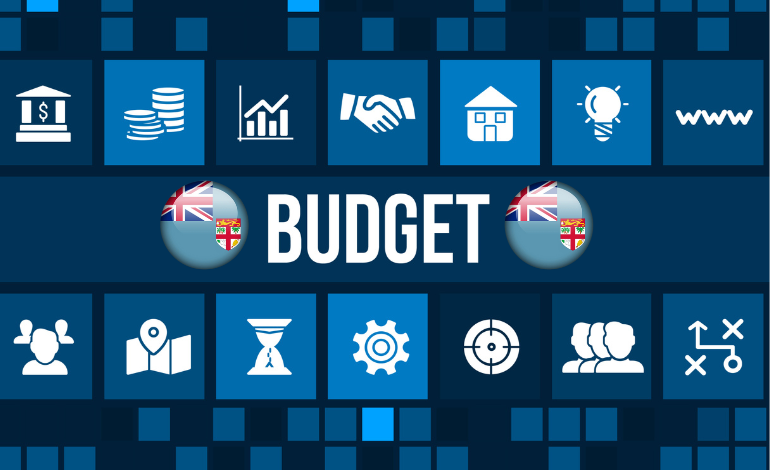The Fiji Government’s 2024-25 budget seeks to strike a balance between reducing the country’s deficit and debt while supporting economic growth and public infrastructure improvements. The theme, ‘An Economically Stable, Secure, and Sustainable Fiji,’ underscores the government’s commitment to macroeconomic stability and fiscal sustainability.
Hon Deputy Prime Minister Professor Biman C. Prasad who is also Minister for Finance, Strategic Planning, National Development, and Statistics, presented the Fijian Budget on June 28, 2024.
Economic Outlook
Growth and Inflation
Fiji’s economy has shown a robust recovery from the pandemic-induced downturn, with GDP surpassing pre-pandemic levels in 2023, primarily driven by the tourism sector. Visitor arrivals exceeded expectations, contributing to the economic rebound. However, the 2024 growth rate has been revised down slightly to 2.8 per cent, attributed to underperforming resource-based sectors and a decline in domestic consumption. Inflation is projected to decrease from 5.1 per cent in 2023 to 3.1 per cent in 2024 and 2.5 per cent in 2025.
Debt and Deficit
The budget outlines a deficit of $635.5 million, equivalent to 4.5 per cent of GDP for 2024-25. Debt to GDP is forecasted to be 78 per cent for 2024, decreasing to 77.8 per cent in 2025. The government aims to minimize the medium to long-term cost of debt through concessional financing and the issuance of long-term bonds.
Key Budget Measures
Revenue and Taxation
The government’s revenue is projected to increase to around 27 per cent of GDP in the medium term, returning to pre-COVID levels. Significant tax changes have already been implemented, so the focus will shift to improving compliance and countering tax evasion. Notable measures include:
- VAT Monitoring System: Reactivation from August 1, 2024, with stringent compliance requirements.
- Penalties: Introduction of a 200 per cent penalty for VAT evasion.
- Tax Holidays: New incentives for companies setting up specialized drug rehabilitation centres, with varying tax holiday durations based on investment levels.
Expenditure Policy
Government expenditure aims to maintain a sustainable level, focusing on efficiency and prioritizing high-impact capital projects. Key strategies include:
- Civil Service: A holistic review to right-size the civil service and contain the public sector wage bill.
- Social Protection: Restructuring to prioritize the most vulnerable segments of society.
- Infrastructure: Increased private sector participation in public infrastructure projects through Public-Private Partnerships (PPP).
Sectoral Allocations
Significant allocations have been made to key sectors, reflecting the government’s priorities:
- Education: $627.6 million, the largest allocation in the budget, emphasizing education and skills development.
- Health: $451.8 million, including substantial investments in major hospitals.
- Social Protection: $199.5 million, with increases in social protection payments.
Future Projections and Challenges
The Fijian economy is expected to return to a pre-pandemic growth trend of around 3 per cent in the medium term. However, challenges such as underperforming resource-based sectors and a declining population due to emigration remain. The budget also addresses these challenges with measures aimed at improving economic resilience and ensuring inclusive development.
The 2024/25 Fijian Budget lays out a comprehensive plan aimed at fostering economic stability and growth while addressing key socio-economic challenges. By focusing on macroeconomic stability, fiscal sustainability, and inclusive development, the government aims to create a resilient and equitable society. The measures outlined in the budget reflect a strategic approach to supporting the economy, improving public services, and ensuring long-term prosperity for Fiji.



